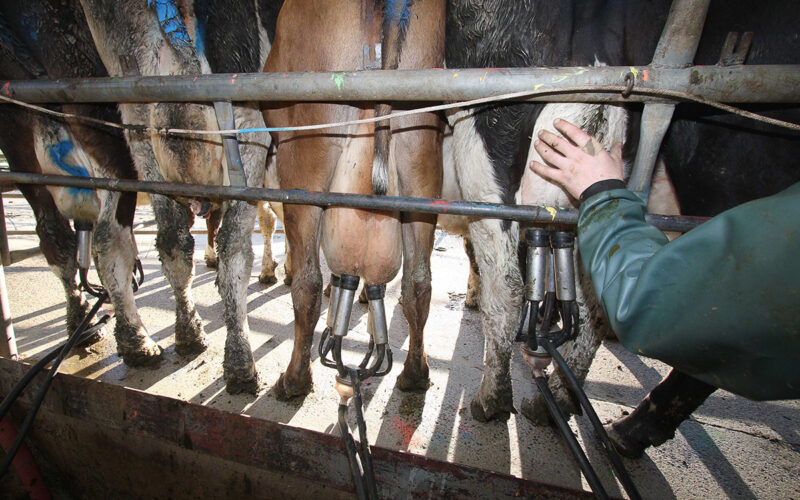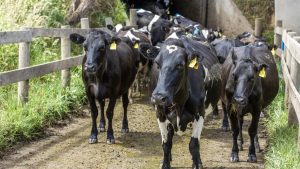
Damning survey into farm management practice sparks calls for new legislation.
A farming consultant is calling for a law change to give contract milkers more legal protection after a damning survey revealed widespread abuse by farm owners in the dairy industry.
In the Contract Milking Experience Survey commissioned by co-founder and managing director of The Sharefarming Consultants Louise Gibson, abusive behaviour from a farm owner was reported by 43% of respondents, and 72.7% of respondents reported having had a contract milking experience that caused a mental and/or financial setback.
Of these respondents, 82.5% reported this impacting their family situation or relationship and 38.4% said that they stayed in the situation because they were worried about where they would live if they left.
The survey was carried out by Survey123 and had 276 responses, 201 from current contract milkers, equating to 12.8% of the industry’s current contract milkers.
Contract milking occurs where a person or business is under a contract to manage certain aspects of the farm business, including but not limited to milking.
Contract milkers are paid a dollar rate per kilogram of milk solids produced. A variable order sharemilker, on the other hand, is paid a percentage of the milk cheque.
According to DairyNZ’s 2023-2024 Dairy Statistics, contract milking made up 14.5% of total dairy farm operation management in New Zealand.
Gibson said contract milkers do not fit into a typical contract law scenario because of the nature of the work.
“They don’t fit into that contract space because of that. They do fit well into the Sharemilking Act, but the definition – because they are paid a dollar rate rather than a percentage – is the problem.”
Reviewing the Act and changing that definition would make a world of difference, she said. She hopes the survey will lead to wider discussion and action on how that law change can be made.
The survey revealed issues with contract agreements. There was a perception that having a Federated Farmers contract milking agreement protected the contract milker. In reality it is a templated agreement, Gibson said.

The survey showed many contract milkers are being pressured into signing agreements. When respondents were asked “Did you feel pressured to sign your agreement without seeking adequate advice?”, a combined 40% had felt somewhat pressured or pressured to sign without seeking adequate advice.
This pressure was often felt by young, inexperienced 2ICs looking to take their first contract milking job.
“If you don’t sign today, I’ll have someone sign tomorrow” pressure was “super common”, Gibson said.
Gibson said she believes many prospective contract milkers are not ready and do not have the necessary business skills and experience needed to succeed in the role.
These people are also the easiest for unscrupulous farm owners to manipulate, she said.
A sizable minority of those surveyed said they had been instructed by the farm owner to breach the law around animal welfare, health and safety and Resource Management Act or consent provisions.
While 67-68% of respondents said no to all three, on animal welfare 17,5% said yes and 11.3% said potentially; on RMA rules, 14.3% said yes and 12.8% said potentially; and on health and safety 20% said yes and 7.1% said potentially.
The survey found that many of the homes provided by farm owners breach Healthy Homes legislation, with a combined 57% saying yes or potentially.
Gibson’s advice for those planning on going contract milking is to go into it with their eyes open.
“The grass is not always greener in contract milking and don’t feel like a failure because you’re not going contract milking.
“And never ever let someone pressure you into signing a contract. If you are pressured into signing … you are more likely to experience abusive behaviour and more likely to go financially and mentally backwards.”
Gibson said she does not want to tarnish all farm owners, saying there are some incredible owners and employers in the industry.
“No one is a villain in their own story, and many will be unaware that the behaviour they are carrying out is having this impact on contract milkers.
“There’s a very small percentage doing it on purpose. There’s a much larger chunk doing it without any concept they are doing something wrong.”
Legislative option on contract milking a tough ask, says Feds
Updating the Sharemilking Act to give more legal protection to contract milkers would be very difficult, says Federated Farmers sharefarm owners chair Brendan Attrill.
It would be a slow process, and was explored several years ago by Federated Farmers, he said.
How far “we could move our agreements forward” would depend on the “political mood of the day”.
A faster and more practical option would be to improve the Federated Farmers contract milking and variable order sharemilking agreements.

Farm consultant Louise Gibson said the Sharemilking Act needs to be amended to provide better protection for contract milkers, after a survey she commissioned in December last year revealed widespread abuse by farm owners.
But Attrill said: “I think it’s far better to support the contract milking agreement we have got, work with all our industry players in relation to what further support do our contract milkers need to perform well, and what support do our owners need to make sure their behaviour is suitable and professional.”
The variable order sharemilking agreement could be amended to allow two payment options – the current percentage or having it as a dollar and cents per kilogram of milk solids.
The farm owner and contract milker would then decide on the option that best suited their situation when negotiating the contract.
Attrill said anything that shines a light on poor farmer behaviour is welcomed. He pointed out that a lot of work has been done over the past decade to improve contract milking for dairy farmers.
Before then, he said, it was a “wild west”, where there was a lot of inappropriate behaviour by farm owners and contract milking agreements of the time did not give enough protection to contract milkers.
“We have learnt a hell of a lot in 10 years. We have done a lot of education pieces in the last decade both with farm owners and share farmers.
“We have moved a hell of a long way in relation to where we were 10 years ago.
He said that of course “we can do better – we always want to protect our contract milkers better and that’s what we have been working on in the past 12 months”.
That work includes looking at ways to further strengthen contract milkers and how to better support them.
“I’m confident that our performance in the contract milking space – both farm owners and contract milkers – is improving year in, year out.”
You can now read the most important #news on #eDairyNews #Whatsapp channels!!!
🇺🇸 eDairy News INGLÊS: https://whatsapp.com/channel/0029VaKsjzGDTkJyIN6hcP1K
























